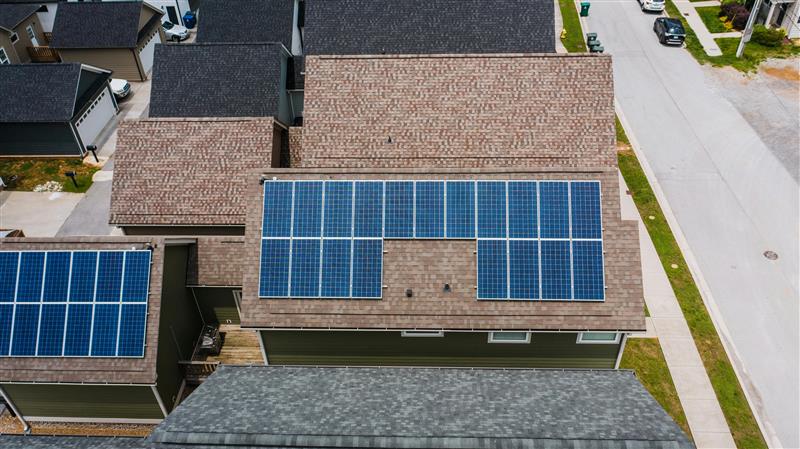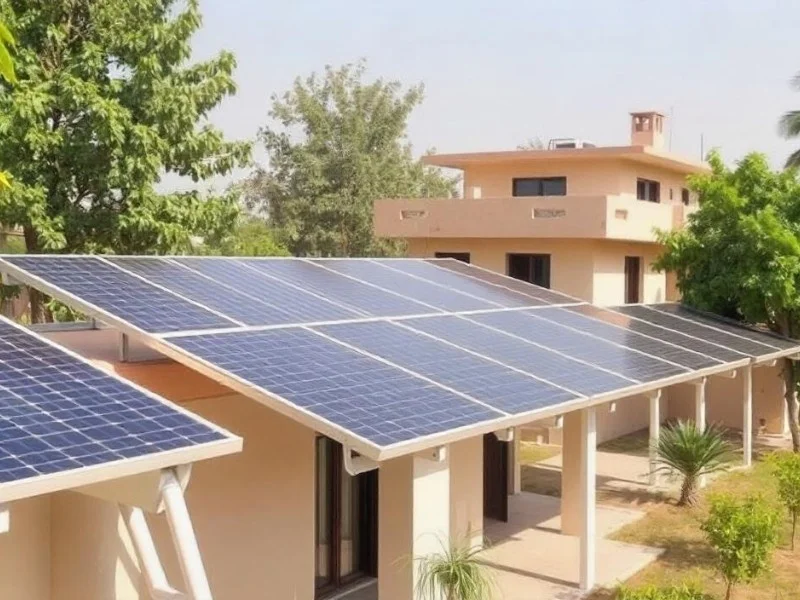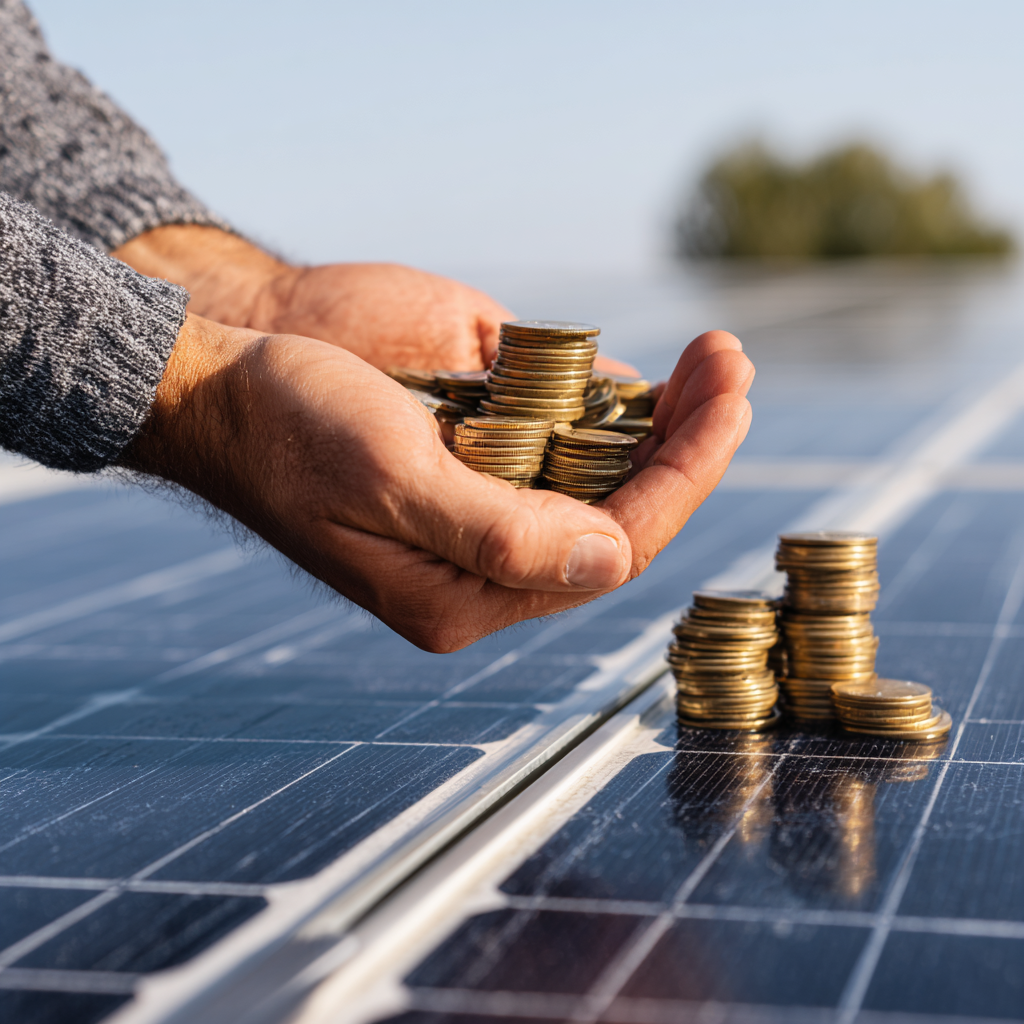While opting for solar, the type of financing model impacts various aspects, including project ownership, required investment, operations and maintenance, and expected returns for stakeholders. Therefore, it is crucial for businesses/consumers to make well-informed decisions when selecting the solar model. Depending on factors like energy consumption, roof size, project size and budget, consumers can choose the appropriate model.
Let us understand the different models in detail:
1. Capex
In a Capex solar power plant, the consumer has the complete ownership of the plant and invests the upfront costs either by putting in their own money or by taking a solar loan. The consumer can enjoy significant savings over the system’s lifetime as the solar plant keeps generating electricity. Moreover, the consumers are eligible to benefit from the tax incentives like accelerated depreciation. They can also realize a return on their investment over the system's lifespan. The payback period can vary from 2-3 years depending on the investment and electricity consumption.
- Usage: The generated electricity is primarily used for self-consumption and in case of excess electricity can be exported to the grid through net metering.
- Best for: Businesses with high energy consumption, particularly MSMEs (Micro, Small, and Medium Enterprises).
The cost of a CAPEX model can start from anywhere around Rs.35000/kW – Rs. 50,000/kW depending on the components, inclusions and size of the solar power plant.
2. RESCO (Renewable Energy Service Company)/PPA/OPEX model
In a RESCO model, a project developer or an investor will invest the entire cost of the solar power plant installed on the rooftop. The investor recovers the money invested by charging the consumer a mutually agreed (Power-Purchase agreement) tariff for the number of units generated by the solar rooftop plant. The consumer will be billed monthly based on the number of units generated by the solar rooftop plant for a pre-determined number of years, say 10,15,20, or even 25. Hence the consumer is billed for an agreed tariff for the coming years which ensures that the business doesn’t suffer from rising grid electricity prices.
- Usage: The consumer uses the power generated by the system during the lease period and hence is billed for the same.
- Ideal for: Consumers that prefer variable costs linked to units generated without upfront investment. However, developers tend to invest in medium to large-scale projects to make it viable. Hence an MSME looking to install 50kW-100kW might not interest developers.
The solar tariff agreed can be 30-40% cheaper than the DISCOM tariff. There could be a flat tariff or an escalating one depending on the agreement between the consumer and the developer.
3. Lease Model
The lease model is very similar to the RESCO or PPA model where the businesses don’t own the solar plant but unlike RESCO, here the business pays a fixed amount monthly irrespective of the solar units generated. In case of RESCO, you pay for the units generated by the solar rooftop plant.
- Usage: The consumer uses the power generated by the system during the lease period and pays a fixed amount.
- Best for: Consumers that prefer fixed costs without upfront investment.
Capex Model for solar power plants and why they make sense for MSMEs?
- Cost Savings: By investing in Capex solar power, MSMEs can significantly reduce their electricity expenses and help themselves from potential future increases in electricity tariffs.
- Asset Ownership: In a Capex setup, unlike other models, the MSME has complete ownership of the solar power asset. This ownership not only adds substantial value to the business but also enables the business to take advantage of various incentives, such as accelerated depreciation benefits.
- Financing Options: Many financial institutions/ NBFCs offer attractive financing options for MSMEs to invest in solar power plants. Hence, MSMEs who do not want to put an upfront investment can take a solar loan and still enjoy the benefits of the Capex model.
- Long-Term Benefits: While the upfront investment is higher, Capex solar installations provide long-term benefits you start saving on electricity bills early on and will enjoy solar power for 25 years.
- Control Over Energy Production: Investing in a Capex solar power plant empowers MSMEs to oversee and manage their own energy generation. This guarantees a consistent and dependable power supply, particularly in areas plagued by frequent power outages, which have the potential to disrupt day-to-day operations.
- Environmental Impact: By generating their own clean energy, MSMEs contribute to reducing carbon emissions, which can enhance their brand reputation and align with sustainability goals. Moreover, MSMEs can be early movers giving them an advantage of being ahead when their bigger clients take serious measures towards net-zero.
The Capex solar model presents an ideal solution for MSMEs, offering long-term cost savings, control over energy production, asset ownership benefits, and a positive environmental impact. Despite the initial investment (which can be secured through financing options), the substantial benefits often outweigh the costs, making it particularly advantageous for businesses with high energy consumption.

.webp)
.webp)
.webp)






.jpg)
.jpg)






.jpg)





.jpeg)












.jpg)


.png)
.png)
.png)
.png)
.png)
.png)


.png)


.jpg)
